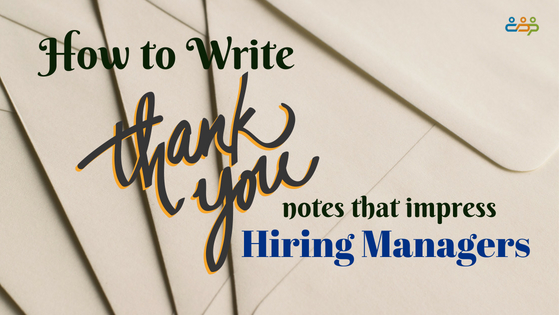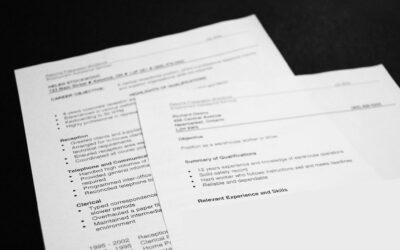I recently saw a thread on LinkedIn with the subject “Do I really need to send a thank-you after an interview?” I know it was my own bias, but I read it with a whiny inflection that sounded like a spoiled child asking if they really needed to thank Aunt Clara for the pink bunny pajamas Christmas present. While the overwhelming responses were yes you need to send a thank-you, I was surprised by the number of responses that for one reason or another it wasn’t necessary.
Like it or not, thank-you notes are a must. Whether it’s an informational interview or traditional job interview, you need to send a thank-you note. But is an email enough these days? Does a handwritten note really help your chances? What should you say besides, “Thanks for your time!”
So, why is it so important?
Because first and foremost, you should be grateful for this person’s time, and it is common courtesy to tell them so. But if you’re looking for a more selfish reason, yes, it can affect your prospects. It’s not just good manners. The interviewer is judging your passion for the job based on whether you send a note and what you say in it.
In a recent CareerBuilder survey, 22% of employers are less likely to hire a candidate if they don’t send a thank-you note after the interview. Fifty-six percent said it shows that the candidate isn’t really serious about the position, and a whopping 86% said it shows a lack of follow-through.
Is an email okay?
A thank-you email within 24 hours of the interview is 100% necessary. Not sending an email—whether you are interested in the position or not—is unprofessional. You want to contribute to the hiring manager’s impression of you while it’s still fresh in his or her mind. But is that enough? For most, it seems to be. According to that same CareerBuilder survey, 89% said it is okay to send a thank-you note in the form of an email.
I would also recommend that you also send a handwritten note at the same time. I know this sounds old fashioned and out dated and it may be a generational thing, but most hiring managers will appreciate the extra effort that it takes to write a handwritten note. Because you send this by snail mail it arrives 3-4 days after the interview and is a good reminder of your interest. One caveat, don’t buy the cards at the Dollar Store, get good cards at the stationary store. Remember, your stationary is part of your brand.
What should you write?
If you met with multiple people during the interview process, you need to write each person an individual thank-you note. It shows that each person mattered.
These letters should be personalized to reflect the conversations that you had with each interviewer. Besides, if they all work in the same part of the company, you never know if they’ll compare notes—literally.
I prefer a three-paragraph format for thank-you letters:
First Paragraph – Thank the interviewer for their time and the opportunity to interview for the position. A little flattery can go a long way here, you can say something positive about the office environment, professionalism of the team, etc.
Second Paragraph – Something that you and the interviewer talked about in the interview. Try to draw a connection between your experience and the position that you were interviewed for. This is your opportunity to reinforce and a point that you feel was of particular concern to the interviewer. Or, to spin an answer that you feel you could have answered better.
Third Paragraph – A second thank-you and express your excitement in the potential of joining the team.
Thank-you notes are not optional, it can be the differentiator that lands you the job!
 Rick Christensen: Director, Career Transition Practice
Rick Christensen: Director, Career Transition Practice
Rick has been a career consultant for almost 30 years, serving a very broad-based and diverse clientele. His specialties include effective group facilitation, one-on-one coaching and consultation at all levels including senior executives.
Rick’s passion is coaching individuals through career transitions, developing career management strategies and in identifying and sharpening competencies to open doors to new opportunities. His efforts have assisted thousands of individuals achieve their full potential.
Contact Rick at: Rick@CareerDevelopmentPartners.com




